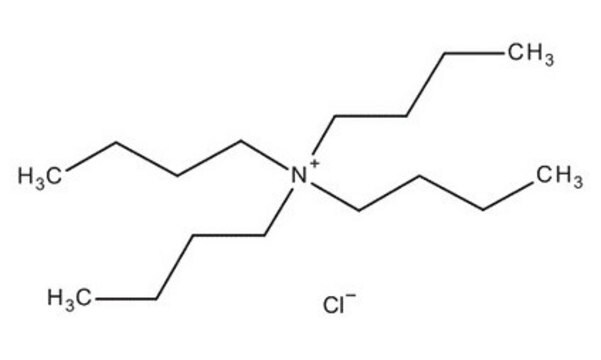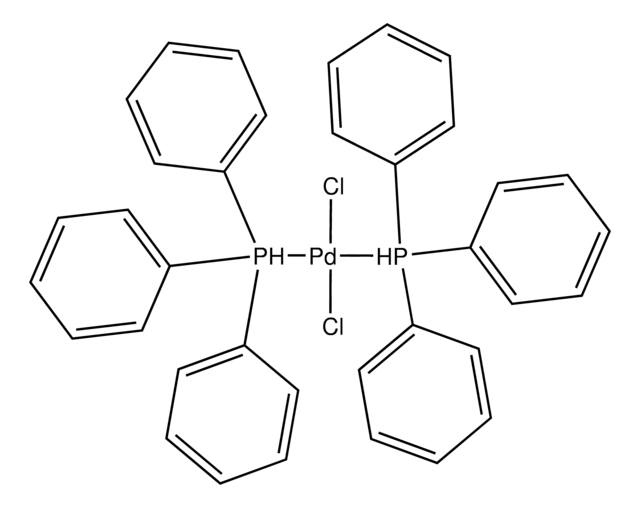8.18164
Tetra-n-butylammonium fluoride trihydrate
for synthesis
Synonym(s):
Tetra-n-butylammonium fluoride trihydrate, TBAF
About This Item
Recommended Products
Quality Level
form
crystals
mp
62-63 °C
storage temp.
2-30°C
SMILES string
[F-].[N+](CCCC)(CCCC)(CCCC)CCCC.O.O.O
InChI
1S/C16H36N.FH.3H2O/c1-5-9-13-17(14-10-6-2,15-11-7-3)16-12-8-4;;;;/h5-16H2,1-4H3;1H;3*1H2/q+1;;;;/p-1
InChI key
VEPTXBCIDSFGBF-UHFFFAOYSA-M
Application
- Unveiling the Use of 1,1-Bis(triflyl)ethylene as CF(3)SO(2)CH-CH(2) Source with the Assistance of (n-Bu)(4)NF.: This study discusses a synthetic approach using Tetra-n-butylammonium fluoride (TBAF) for generating 3-[(Trifluoromethyl)sulfonyl]cyclobut-1-enes, highlighting its role in mediating fluoride ion transfer in organic synthesis (Almendros et al., 2024).
- Speciation and kinetics of fluoride transfer from tetra-n-butylammonium difluorotriphenylsilicate (′TBAT′).: The article explores the speciation and kinetics involved in fluoride transfer processes using TBAT, a compound closely related to TBAF, providing insights into its utility in synthetic chemistry (Lloyd-Jones et al., 2024).
- Conjugated Polymers with Self-Immolative Sidechain Linkers for Carbon Nanotube Dispersion.: This research utilizes TBAF in the development of novel conjugated polymers with self-immolative sidechains for effective dispersion of carbon nanotubes, demonstrating its application in materials science and nanotechnology (Adronov et al., 2024).
- Room temperature synthesis of CdSe/CdS triangular nanoemitters and their stabilization in colloidal state and sol-gel glass.: The article discusses the synthesis of semiconductor nanostructures at room temperature, where TBAF plays a critical role in the stabilization of colloidal solutions (Parola et al., 2023).
Analysis Note
Water (K. F.): 15.0 - 19.0 %
Signal Word
Warning
Hazard Statements
Precautionary Statements
Hazard Classifications
Acute Tox. 4 Oral - Aquatic Chronic 3 - Eye Irrit. 2 - Skin Irrit. 2
Storage Class Code
11 - Combustible Solids
WGK
WGK 3
Flash Point(F)
Not applicable
Flash Point(C)
Not applicable
Certificates of Analysis (COA)
Search for Certificates of Analysis (COA) by entering the products Lot/Batch Number. Lot and Batch Numbers can be found on a product’s label following the words ‘Lot’ or ‘Batch’.
Already Own This Product?
Find documentation for the products that you have recently purchased in the Document Library.
Customers Also Viewed
Our team of scientists has experience in all areas of research including Life Science, Material Science, Chemical Synthesis, Chromatography, Analytical and many others.
Contact Technical Service













